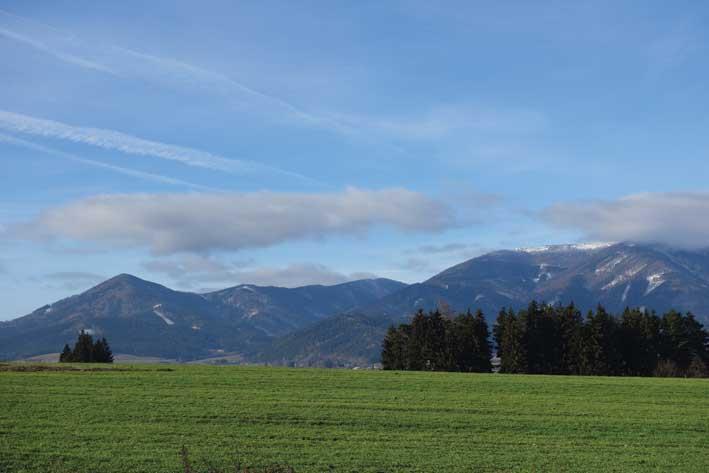"I was in Prague to attend a conference at the beginning of March, and from there I had to fly to London for the annual book fair where I had to give a reading and an interview. Fear of the virus started creeping in slowly: Prague registered the first cases, conference delegates from Italy and Spain did not turn up. On my second day in Prague, I got an email that the London book fair was cancelled. So I had to buy a ticket to Malta. Barely twenty-four hours later the flight was cancelled so I had to find an alternative flight, which cost quite a lot. That is when I realised that the COVID threat wcaas very, very real. Malta had no cases yet back then. I flew back to Malta, on Monday 9th March, gave a lecture on the 10th, little knowing that would be the last live lecture I'd be giving for last academic year. That day WHO declared a pandemic and I called my GP who scolded me for travelling: that's when I learned that, given my physical disability and the medication I have to take for it, I was classified as "vulnerable". I went into self-isolation immediately. I remember spending Wednesday and Thursday trying to get hold of Zoom platform which I used for the first time, miraculously without any hitch, on Friday 8am with a lecture on contemporary Maltese poetry.
During the first two weeks of isolation, I was very tense. I kept recalling that I had been in Prague (and Turku a fortnight before that), waiting at crowded airports, using overcrowded underground trains, lodging in a crowded hotel and spending days long discussing with twenty other people all closed in one room. And of course, there were no masks and no sanitisers available anywhere in Prague (or in other places). I was really scared, more so when I was told that given my disability even putting me on a ventilator would be very problematic.
During isolation, I kept giving my lectures, 'meeting' my students on zoom even for consultation, and that meant long hours looking at the laptop screen. The tension during the first fortnight prohibited me from doing anything else: I could not put myself to read or think and even less to write. I just did my work. My wife, who is not Maltese, was all the time following news from her country, checking on her elderly mother who lives on her own, and worrying about her father who, being a pathologist had to keep going to work, which often meant on the scene of the crime.
Soon after I went into isolation, I took over most domestic chores: I got to know of Alister the vegetable and fruit vendor who received orders via WhatsApp and delivered them within hours; and started preparing lunches and dinners. I'm not a cook, far from it, but the kitchen did help my mood. I experimented a lot and was generally quite happy with the result.

In spring the writer sets up office on the terrace of their home in Zebbug. Bambinella is always a perfect companion
One new thing I did was watch crime series, something I had never done before. And I have to admit, I've become an addict for the British but not the American ones. So, because of the series and the only TV programme I follow religiously every week, Chi l'Ha Visto on Rai 3, I saw a lot of dead bodies and blood and mysteries during the isolation period. Eventually, when the tension started to ease, I began reading a lot again, but nothing even remotely related to viruses and pandemics. I even gave three online poetry readings, which gave me immense pleasure, especially as I noticed that at some points, I had around 300 live viewers, something I wouldn't even dream of in normal circumstances.
Three significant regrets: I really felt sorry for my son Nikol, who is a basketball player and who was almost certain his team would win his section's league this year. Unfortunately, the league was stopped abruptly, and he still expresses his disappointment from time to time. Second, on 16th May, my father would have turned 100, and I had planned to celebrate this important birthday by calling my family over for a party. Of course, that could not happen. And third, I missed going to London for the bookfair, to Abu Dhabi, Thessaloniki, Belgrade and Zagreb for the launch of translated editions of some books of mine there. That really was a blow, I have to admit. Fear of travelling also meant we stayed in Malta in summer instead of going to Slovakia as we usually do to visit our family there. I missed the mountains, the rivers Vah and the Danube, the forests, and rich Slovak food. Being almost a recluse, except for going to work, I did not mind staying in, but yes, I do miss the short trips abroad.

Dr Mifsud missed waking up to scenes like this in summer usually spent in Slovakia
However, there were some positive outcomes too, besides those mentioned already. Thanks to technology, I kept in touch with my siblings, who are all 65+ and so in the 'elderly-therefore-vulnerable' group. I also kept in touch with my siblings in Australia. I have a friend who lives in Lombardia, very much in the Italian red zone, and we exchanged regular messages of hope. The same thing happened with a Maltese friend who lives abroad, and who wrote such beautiful if sad, poetry chronicling her experience of isolation. So relationships, even distant ones, became quite important and significant."
[email protected]